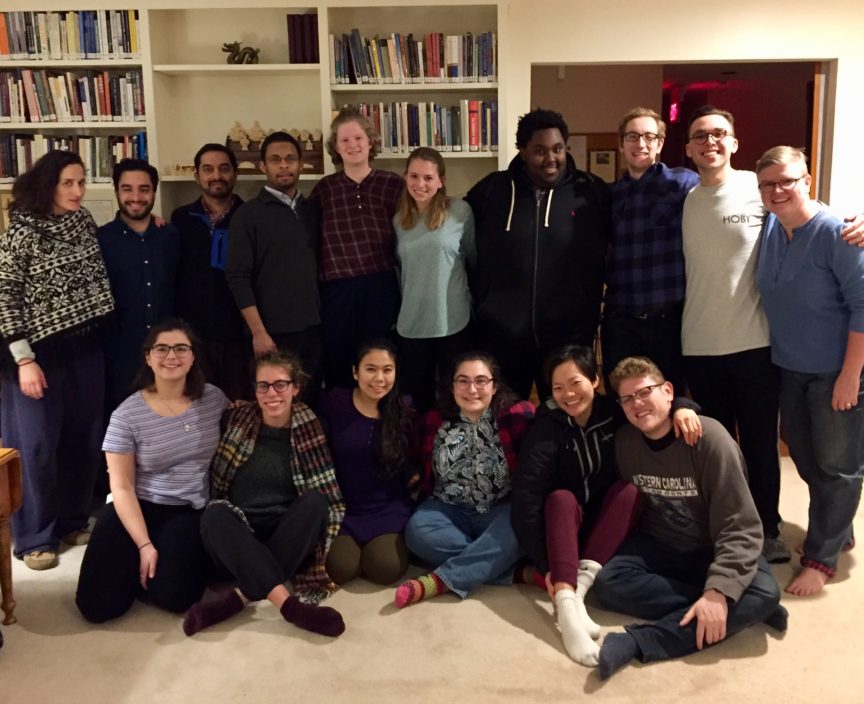
Interfaith Student Leadership Retreat
More
2019-02-08
Country: United States
City: Vermont/Burlington
The Interfaith Center at The University of Vermont held its first ever Interfaith Student Leadership Retreat on February 8th & 9th, 2019. This overnight retreat brought together 15 undergraduate and graduate students, both domestic and international, to reflect on their own and others’ worldviews, develop skills and confidence for leading interfaith conversations, and build interfaith community. This was a significant step forward in supporting and expanding an emerging interfaith community on campus.
When the topic of religion arises at The University of Vermont, two facts are often mentioned in conversation. The first is that UVM is a public institution whose secular identity should be expected and protected. The second, as noted by one of the most recent Pew Research Center surveys, is that Vermont is the least religious state in the Union. Unfortunately, the common interpretation and application of these realities is that religion and its expression is at best, out of place, and at worst, antithetical, to academic and communal life at UVM.
Many generations of UVM students endured their experience of the marginalization of religion and religious identity on campus with a sense of resignation. However, since the opening of an Interfaith Center in fall 2016 with a full-time Interfaith Coordinator, students have become increasingly empowered to share their desire for a more inclusive and engaged campus regarding religious identity, expression, and interfaith relationships.
The Interfaith Student Retreat was an initiative to help shift the campus culture away from the marginalization of religious identities and expressions and toward inclusion and engagement. It began early Friday evening with dinner and the intentional sharing of the identities and religious/philosophical perspectives participants brought to interfaith conversations and community. On Saturday, the group was introduced to the Interfaith Triangle articulated by Eboo Patel in his book "Interfaith Leadership: A Primer" (2016). This easy to use evaluation model invites individuals to design interventions that maximize knowledge and relationships to influence attitudes. With the introduction to this model, students were encouraged through exercises and conversations to reflect on the individuals, groups, and situations they might be able to promote interfaith engagement and cooperation.
Students' reflections regarding their experience at the retreat included:
- "I was impacted the most by being able to have conversations with other like minded students who share the similar desire to understand their own faith in context of their surrounding environment, and to have a space to articulate those thoughts and feelings without judgement."
- "I learned how I can take my experience with religion and how to have fruitful conversations with others.."
- "I learned every person and every religion is striving for the same thing - they just project that and manifest that in different ways."
- "I had such meaningful conversations around spirituality, self-growth, and creating positive changes based on social justice in our communities."
- "I feel renewed and hopeful."
- "I am grateful for these people, who so openly shared themselves this weekend. Grateful for this place, for being a space of growth, self-realization, and connectedness across difference. And, forever grateful for the Interfaith community at the University of Vermont, for helping me come into my own, and allowing others to experience the same."
City: Vermont/Burlington
